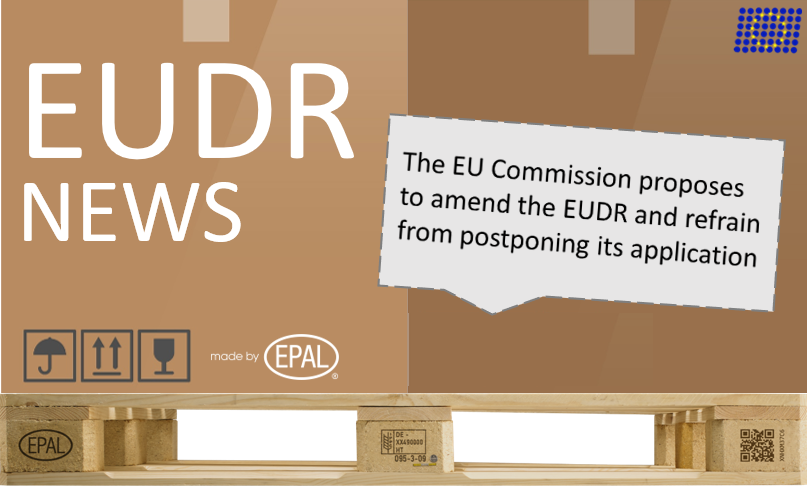EU Commission proposes amendment to the EUDR and refrains from postponement
On 21 October 2025, the EU Commission published a proposal to amend the EU Deforestation Regulation (EUDR). The proposal contains significant simplifications for many companies in the timber industry, in particular by waiving the requirement to prepare a due diligence statement if due diligence statements are already available for the raw material. At the same time as publishing the proposed amendment, the European Commission announced that it no longer plans to postpone the start of the EUDR's application. This had been proposed by the European Commission on 23 September 2025, citing IT problems as the reason.
The EUDR aims to prevent forests from being cleared to make way for other agricultural products such as soy or palm oil. Timber is also one of the relevant products to which the EUDR is to be applied. The EUDR came into force on 29 June 2023 and is to be applied from 30 December 2025. Since the publication of the EUDR, there has been widespread criticism that the companies affected will be burdened with a considerable administrative obligations, even though many products do not actually pose a risk of deforestation and the administrative burden is unnecessary. The European Commission has now responded to this criticism.
The following part of the new regulation is of particular importance for manufacturers and repairers of EPAL pallets and for the entire wood packaging industry:
Companies in the downstream supply chain, so-called downstream operators and traders, are not required to submit a due diligence statement if due diligence statements and EUDR reference numbers are already available for all materials used in manufacturing or repair. Instead, companies collect the EUDR reference numbers they receive from their material suppliers, thereby ensuring the EUDR compliance of the products they manufacture.
This regulation also applies to manufacturers and repairers of EPAL pallets who exclusively use wooden components for which due diligence statements and EUDR reference numbers are already available. Manufacturers and repairers of EPAL pallets therefore prove the EUDR compliance of the EPAL pallets they sell by keeping the EUDR reference numbers of the wooden components (boards and blocks) and being able to present them if required.
Bernd Dörre, CEO of EPAL:
„With the proposed amendment, the EU Commission has followed the demand of EPAL and many other associations and companies to avoid the multiple submission of due diligence statements for the same product. It is not necessary to submit due diligence statements for EPAL pallets if there are already due diligence statements for all wooden components, i.e. for the boards and the blocks of the pallets, which prove EUDR conformity.
The proposed amendment to the EUDR would significantly reduce the administrative burden for many companies. At the same time, this does not undermine the achievement of the right objectives of the EUDR. We therefore support the EU Commission's proposed amendment and hope that it will be confirmed by the other EU bodies.
However, the communication of the EU Commission is unsatisfying. Following the proposal of 23 Sep 2025 to postpone the application of the EUDR again by one year, many companies have already prepared to this. The waiver of a postponement now announced by the EU Commission poses major challenges for those companies despite the proposed changes. We therefore hope that the EU bodies will now quickly provide clarity on how to proceed.”
EPAL supports the objectives of the EUDR. The preservation of healthy forests and the sustainability of supply chains are the basis of life for humanity and also for the timber industry. The concept of sustainability describes the principle practised in the European timber industry for centuries of harvesting only as much wood as can be regrown at the same time. This is guaranteed in EU Member States by national laws on forest protection. In fact, European forest areas have grown in recent years. As the wood for EPAL pallets comes predominantly from European production, the manufacture and repair of EPAL pallets does not pose any risk of deforestation or forest damage.

